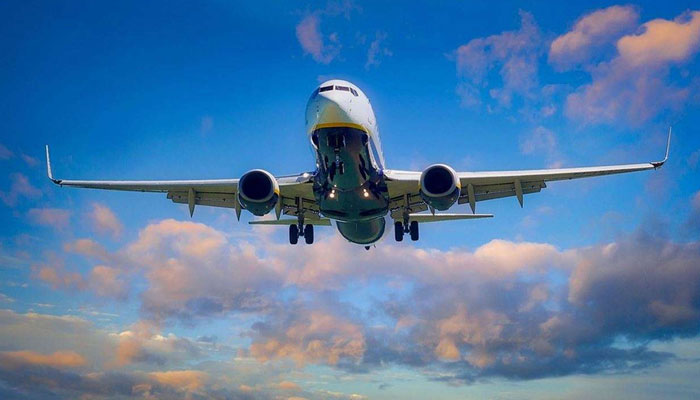
Traveling by air can be an exhilarating experience, whisking you off to far-flung destinations in a matter of hours. However, sometimes things don’t go as planned, and flight delays can turn an exciting journey into a frustrating ordeal. Knowing your rights and the compensation you’re entitled to can make all the difference. This guide will walk you through the essentials of flight delay compensation, ensuring that you’re well-informed and prepared.
Compensation Review
In the maze of air travel, delays and cancellations are an unfortunate reality. Compensation emerges as a beacon of hope for travelers seeking compensation. Here’s a snapshot of how Compensair operates and what users think about their services in 2024.
How Compensation Works

Compensation is a service that assists passengers in claiming compensation for disrupted flights. Whether it’s a delay, cancellation, or overbooking, Compensair steps in to simplify the often complex process of filing a claim against the airline.
The Process:
- Claim Submission: Passengers submit their claim through Compensair’s platform.
- Verification: Compensair verifies the eligibility of the claim.
- Negotiation: They handle all the negotiations with the airline.4. Success Fee: If successful, Compensair charges a 30% fee.
User Experiences
In 2024, customer reviews highlight a mix of satisfaction and frustration:
- Positive Feedback: Many users praise Compensair for recovering compensation from airlines like Ryanair and Air Serbia, even after lengthy processes.
- Criticism: Some users express disappointment with delayed compensation and the 30% service fee.
Overall Impression
Compensation has carved out a niche in the air travel industry, offering a valuable service for those seeking compensation. While the majority of reviews are positive, citing ease of use and effectiveness, there are instances of dissatisfaction, primarily due to the time taken to resolve claims and the service fee involved
Has your Flight been Delayed or Cancelled?
If you’ve experienced a Flight Delay or Cancellation, you may be entitled to compensation. The specific rights and amounts can vary depending on the airline, the length of the delay, and the region. For instance, under EU law, passengers may receive up to €600 for significant delays or cancellations, provided the circumstances fall within the airline’s control and are not due to extraordinary events.
To check if you’re eligible for compensation and to initiate a claim, you can directly contact the airline or use services like Compensair, which specializes in managing compensation claims for passengers. They can help you understand your rights, assess your situation, and handle the necessary paperwork to pursue a claim on your behalf.
What Constitutes a Flight Delay?

Before diving into compensation, it’s important to understand what qualifies as a delay. When an airline flight departs or arrives later than expected, it is referred to as a Flight Delay. The length of the delay and the reasons behind it play a crucial role in determining compensation eligibility.
Understanding Flight Delays: A Brief Overview
Flight delays are an all-too-common aspect of air travel that can disrupt plans and cause frustration. But what exactly constitutes a flight delay?
Definition and Thresholds
A flight delay occurs when a plane departs or arrives later than its scheduled time. While a delay can be as short as a few minutes, it’s generally recognized when it exceeds 15 minutes. However, for compensation purposes, especially in the EU, a delay must be three hours or more.
Causes of Delays
There are several reasons why delays may occur, including:
- Technical issues: Mechanical problems with the aircraft.
- Weather: Bad weather at the airport of departure or arrival.
- Air traffic control: Congestion in the skies or on the tarmac.
- Security issues: Delays due to safety concerns or emergencies.
Passenger Rights and Compensation
Passenger rights vary by region:
- EU Regulation (EC) No 261/2004: In the EU, passengers may be entitled to compensation for delays over three hours, unless caused by extraordinary circumstances.
- U.S. DOT: There are no federal laws requiring airlines to provide compensation for delays, but policies vary by airline.
Understanding Your Rights
EU Regulation (EC) No 261/2004
In the European Union, passenger rights are protected under EU Regulation (EC) No 261/2004. This regulation entitles passengers to compensation for flights that are delayed for more than three hours, canceled, or in some instances denied boarding due to overbooking.
The Montreal Convention
The Montreal Convention, formally known as the Convention for the Unification of Certain Rules for International Carriage by Air, represents a significant advancement in the regulation of international air travel. Ratified in 1999, it amended the Warsaw Convention’s provisions on compensation for air disaster victims and aimed to re-establish uniformity and predictability in the rules relating to the international carriage of passengers, baggage, and cargo.
Key Provisions:
- Liability in Case of Accidents: The convention introduces a two-tier liability system for air carriers, which eliminates the need to prove willful neglect to obtain damages beyond a certain limit.
- Compensation Limits: It sets a cap on the amount of compensable damages, with air carriers being strictly liable for proven damages up to 128,821 Special Drawing Rights (SDR), roughly equivalent to USD 175,000.
- Jurisdiction: It allows victims or their families to sue foreign carriers in their principal place of residence and requires all air carriers to carry liability insurance.
Impact on Passengers and Airlines:
The Montreal Convention has been instrumental in providing fairer compensation and greater protection for passengers. It also benefits airlines by offering greater certainty about the rules governing their liability across international networks.
U.S. Department of Transportation (DOT) Regulations

The U.S. Department of Transportation (DOT) oversees various regulations that impact the transportation industry, including air travel. While the DOT does not mandate specific compensation for flight delays, it does enforce rules that protect consumers in certain situations. Here are some key points regarding DOT regulations:
- Overbooking: The DOT requires airlines to compensate passengers who are involuntarily bumped from flights due to overbooking, depending on the length of the delay after being bumped.
- Tarmac Delays: There are strict rules regarding lengthy tarmac delays, including requirements for providing passengers with food, water, and access to restrooms.
- Transparency: Airlines must disclose flight delay information and the reasons for delays.
Refunds: The DOT mandates that airlines must refund passengers if flights are canceled or significantly delayed, and the passenger chooses not to travel
Compensation Eligibility
To be eligible for compensation, several factors need to be considered:
- Flight Destination: Whether your flight is within the EU, arriving in the EU from outside, or departing from the EU to a non-EU country.
- Airline: If the airline is based in the EU or not.
- Delay Duration: The length of the delay is critical, with different thresholds for different scenarios.
- Reason for Delay: Airlines are not liable for compensation if the delay is caused by extraordinary circumstances beyond their control.
Calculating Compensation Amount
The amount of compensation varies based on the distance of the trip and the duration of the delay.
- Short distance (up to 1500 kilometers): €250
- Medium distance (1500 – 3500 kilometers): €400
- Long distance (over 3500 kilometers): €600
How to Claim Compensation
If you find yourself eligible for compensation, follow these steps:
1. Gather Documentation: Keep all travel documents, including boarding passes and any communication from the airline regarding the delay.
2. File a Claim with the Airline: Contact the airline directly to file a claim. Be prepared to provide details of the flight and the delay.
3. Seek Legal Assistance: If the airline does not respond or you are unsatisfied with the outcome, you may seek legal assistance or contact a national enforcement body.
Tips for a Smooth Compensation Process

- Act Quickly: File your claim as soon as possible after the delay.
- Keep Records: Document everything related to the delay and your claim.
- Know the Policy: Familiarize yourself with the airline’s compensation policy and your rights under the law.
- Be Persistent: Follow up with the airline if you do not receive a timely response.
Compensation: A Balanced Look at Its Pros and Cons
Compensation has become a go-to service for air passengers seeking compensation for flight delays and cancellations. Like any service, its advantages and disadvantages are present. Here’s a brief overview of the pros and cons of using Compensair.
Pros
- High Success Rate: Compensair’s expertise in airline compensation laws often leads to successful claims.
- Ease of Use: The platform is user-friendly, making the claim process straightforward for those unfamiliar with the intricacies of airline compensation.
- No Win, No Fee: You only pay Compensation if your claim is successful, with a fee of 30% of the compensation amount.
- Global Coverage: Compensair operates in over 40 countries and deals with hundreds of airlines, offering a broad range of services.
- Positive Reviews: Many customers have reported positive experiences, citing the simplicity and effectiveness of the service.
Cons
- Service Fee: If your claim is successful, Compensair takes a 30% cut as a service fee.
- Compensation Time: The time to receive compensation can be lengthy, especially if court proceedings are involved, taking up to 20 weeks.
- Limited Communication Channels: There is no live chat or Facebook chat system, and the support is not personalized.
Conclusion
Flight delays are an unfortunate reality of air travel, but knowing your rights and the compensation you’re entitled to can alleviate some of the stress. By understanding the regulations and being prepared, you can ensure that you’re compensated fairly for the inconvenience.
FAQ
Here’s a summary of frequently asked questions about Compensair and their answers based on the information available:
Q: Am I eligible for compensation if my flight has been delayed?
A: You may be eligible for compensation if your flight was delayed, or canceled, or if you were denied boarding. The eligibility depends on several factors, including the length of the delay, the reason for the delay, and the regulations applicable to your flight.
Q: Can Compensair help if my claim has already been rejected by the airline?
A: Yes, Compensair can still help you even if your initial claim was rejected by the airline. They have expertise in dealing with such cases.
Q: Do I need to be an EU or Turkey citizen to be eligible for compensation?
A: No, you do not need to be a citizen of the EU or Turkey to be eligible for compensation. The regulations apply to all passengers of flights that are within, departing from, or arriving in the EU or Turkey, regardless of nationality.
Q: How does Compensair assist in getting compensation?
A: Compensation helps by assessing your case, preparing the necessary documents, and negotiating with the airline on your behalf to secure your compensation.
Q: What are the costs associated with Compensair’s services?
A: Compensation charges a fee only if they successfully secure compensation for you. The fee is a percentage of the compensation amount.
Q: How much time does it take to get paid?
A: The time it takes to get compensation may vary. It may take longer if court proceedings are involved, with an average of 8 weeks to resolve a claim.
Q: Which countries and airlines fall under the regulations that Compensair deals with?
A: Compensation deals with claims involving airlines from over 60 countries, including those under EU and Turkey regulations.
Q: Is there a time limit for claiming compensation for a disrupted flight?
A: Yes, there is a time limit for claiming compensation, but it can vary depending on the country’s regulations. It is best to file your claim as soon as possible.
Q: Who receives the compensation if the ticket was purchased by my employer?
A: Generally, the compensation is given to the passenger, not the person or company who paid for the ticket.
Q: What information do I need to provide to apply for compensation?
A: You will need to provide details of your disrupted flight, such as flight number, date, and the nature of the disruption, along with your details.
For more detailed answers or if you have additional questions, you can visit Compensair’s FAQ page or contact them directly.









